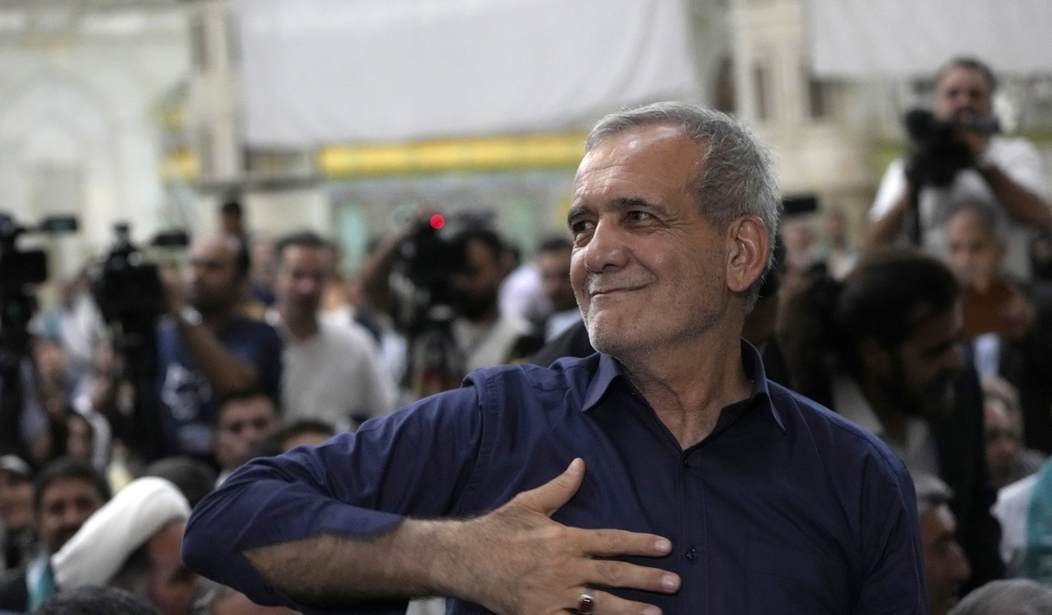Israel is on edge waiting for what Iran has promised will be a strong response to Israel's presumed assassination of Hamas leader Ismail Haniyeh in Tehran on August 2.
In April, following Israel's assassination of several Revolutionary Guard leaders in Syria, Iran attacked Israel directly with more than 300 missiles and drones.
But only a few of them reached their targets. Most were shot down by a unique and previously secret anti-Iran coalition involving the U.S., Saudi Arabia, Jordan, Egypt, and the United Arab Emirates.
Four months later, the situation has changed. Israel's war against Hamas has resulted in thousands of civilian casualties, the result of Hamas fighters using people as human shields. Also, the killing of Haniyeh, the chief negotiator for Hamas in Doha, angered Arab leaders because the Hamas leader was getting closer to a cease-fire deal.
The internal politics of Arab countries has changed drastically since April, and it's unclear if that coalition is still viable. Tellingly, some Arabs have distanced themselves somewhat from Israel's defense this time, and it's an open question whether they will assist Israel in its air defenses.
"Jordan and Saudi Arabia have declared they do not want their airspace transformed into a battle zone," says a report in the Washington Post. "Egypt has said it would not 'take part in a military axis that would participate in repelling' an Iranian attack."
“We’re working really, really hard, with intense diplomacy, to try to avoid an escalation,” White House national security adviser John Kirby told reporters on Wednesday while adding that President Joe Biden “ordered additional military resources to the region to make sure that, should Israel be attacked, that the United States can ably come to her defense.”
It may be that If Iran attacks as aggressively and as hard as it is capable, Israel may find itself virtually alone if it goes to all-out war with Iran.
“Our response is coming and it will be strong, impactful, and effective,” Hezbollah leader Hasan Nasrallah said in a speech on Wednesday.
Nasrallah is a survivor. He's been in charge of Hezbollah since 1992, and he hasn't lived this long with a bullseye on his back by being reckless. He knows his enemy well and will not respond past the point that Israel feels compelled to destroy Hezbollah.
Israel assesses that Hezbollah will start the attack, potentially firing toward Tel Aviv and using guided missiles, according to Yoel Guzansky, a former official on Israel’s National Security Council who is now a senior researcher at the Institute for National Security Studies in Tel Aviv.
A worst-case scenario, he said, would be a multi-front attack from other Iranian proxies designed to “challenge the limits of Israel’s systems, which can be overwhelmed … and which, as seen in April, rely on the regional coalition for strategic depth.”
If the regional coalition of Arab states sits on the sidelines and Iran, Hamas, the Houthis, and other Islamist militias launch a coordinated attack, Israel would be in serious trouble and could possibly suffer significant civilian casualties.
“If Hezbollah continues its aggression, Israel will fight it with all its might,” Defense Minister Yoav Gallant warned in a message in Arabic posted on X on Thursday. “He who plays with fire may expect destruction.”
Might Israel launch a preemptive strike on Iran? It wouldn't deter an Iranian attack and might even cause Iran to escalate their response. It's an option that Israeli Prime Minister Netanyahu hasn't quite got around to discussing with his security cabinet yet. “That’s something that we haven’t gotten to yet, but the future is yet to come,” the senior Israeli politician said.
Gen. Michael E. Kurilla, head of U.S. Central Command, was in Israel for a second time this week to discuss military coordination. Newly deployed U.S. assets include a squadron of F-22 Raptors, naval cruisers and destroyers, and the aircraft carrier USS Abraham Lincoln and its accompanying ships, which are heading toward the Middle East to replace another carrier strike group that will be departing the region.
“The U.S. is much busier than it was in April, but it also realizes that a regional war will affect the economy, and it is in their interest to stop the escalation,” said Israel Ziv, a retired major general who served as the head of the Israel Defense Forces Operations Division.
The Jerusalem Post reports that U.S. intelligence believes that Iran will attack on Tisha B’Av when Jews mourn the loss of the first and second Temples. The solemn observance begins on August 12 and ends on August 13.
And the Times of Israel reports that Iranian President Masoud Pezeshkian is fighting with generals to tone down the scale of Tehran’s response. Rather than hitting Tel Aviv and fearing all-out war with Israel, Pezeshkian is pushing for Iran to hit undisclosed Mossad spy bases hidden around the region.
Perhaps Pezeshkian wishes to avoid another humiliating setback for Iranian arms if most of the missiles and drones are once again intercepted. But the Iranian president is new and likely not as influential as other voices in the Iranian government.










